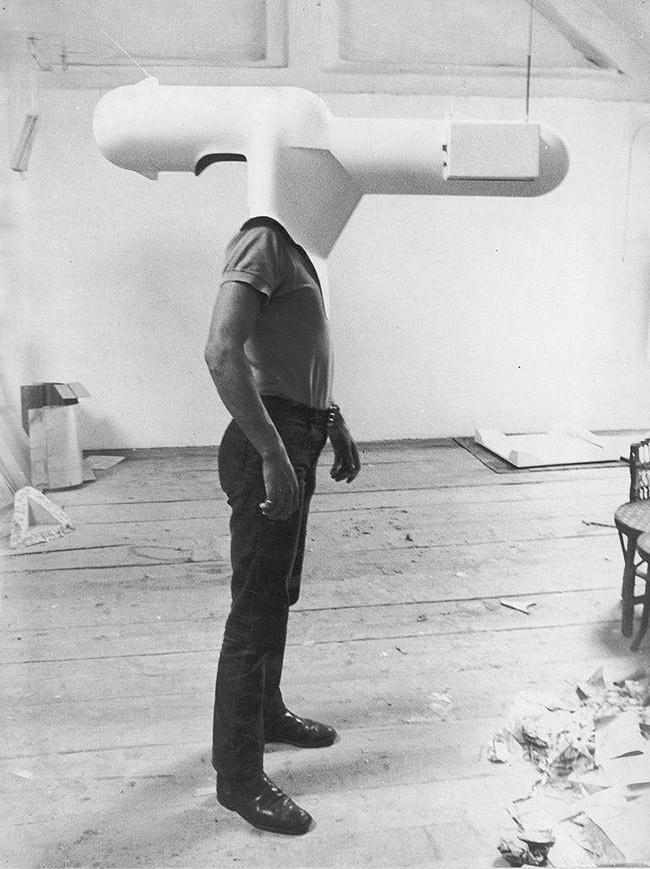
Haunted MTL Original – Coffin Birth – David Simmons
More Videos
Published
4 years agoon
By
Shane M.“Coffin Birth” by David Simmons
When another person is going on about something you find disagreeable and you wish to make them stop talking, the best strategy to employ is to let them know that they have a little something on their face.
“You got a little something…,” you say. “On your face. Right there,” and you’re pointing to your own chin, right below your bottom lip. Cringing, half-smile, eyes squint condescendingly. This is when they stop talking.
“Oh…” and they’re speaking and making excuses but their sputtering isn’t actual words and they’re dabbing their chin with their napkin in the same spot that you pointed to on your own chin.
“Ah, no, yeah, it’s still there,” and now you’re pointing to a different spot, lower, smiling sympathetically.
“Did I get it?” is what they ask you, anxious, desperately blotting their face.
“Ah, nevermind,” you tell them, your hand waving them off. “Don’t worry about it.”
“No seriously, did I get it?”
“Hey, forget about it,” you reply, refusing to speak about it any further.
They sit across the table from you now, frantically dabbing and blotting at their face. They have completely forgotten what it is they were pontificating about and furthermore, now, they cannot remember why they felt so adamantly about whatever it was.
* * *
Gar is going on and on about something he has recently started referring to as Taco Tuesday. Gar is always going on and on about something.
“The premise is simple. I transfer the mydriatic from the original bottle into this one.”
He is pointing to a vial of eye drops, the label on the front peeled off.
“Atropine,” Gar declares, tapping the vial. “The doctors used to keep Atropine in the office which is way more potent than Tropicamide. A bottle of Atropine will close your throat all the way up. Tropicamide; it’ll do it but it’ll take a lot more.”
He plucks the vial of eye drops between his index finger and thumb and frantically begins to tap it against the gnarled and scratched wood of the tabletop.
“Atropine…” he goes on, “dysphoria, tremors, psychomotor agitation, tachycardia, convulsions…”
Gar is listing off the symptoms of mydriatic eye drop poisoning on his left hand, starting with his thumb, then index, then middle and so on until he has made it all the way to the little finger of his right hand and then he stops and says, “did I say dysphoria yet?”
The Honeywell wireless door chime produces the sound of a digital device attempting to recreate the sound of a natural doorbell and a young woman in yoga pants walks into the restaurant. Gar looks away for a moment, his eyes following the woman as she makes her way to the counter.
The woman says to the man at the counter, I ordered online? and she says it like it’s a question in that distinct way that only privileged caucasian women from places with shiny, new gentrification-names like NoMa and SoHo speak. She scrolls through her phone, finds what she is looking for, shows the man at the counter the image on the screen. The man looks over his shoulder and yells fifty-six, picking up! He looks at the woman, smiles, tells her just a moment.
“Look,” Gar says, eyeing the counter. “Watch him say it, he always says it.”
The man at the counter puts utensils and napkins in the plastic carryout bag, hands it to the woman, still smiling. The woman nods at the man, thanks him.
“Our famous pico de gallo is over there on the condiment table,” the man at the counter says, Gar silently mouthing the words of his speech along with him. “Along with flour tortilla chips—made right here in our own kitchen—and salsa; mild, medium or diablo. Please help yourself.”
The woman nods, makes her way to the condiment table. Gar is watching her, focused. He licks his aubergine sausage lips.
“Fine piece of ass like her probably don’t even eat chips and salsa,” says Gar, sneering.
“Alright, that’s enough,” I say to Gar and that’s all I say. Three words. This will probably be all that I say for the remainder of this engagement. This woman is somebody’s daughter. Somebody’s sister. Perhaps somebody’s mother, although judging from her narrow waist this would probably prove unlikely. Fuck! Here I am, focusing on this woman’s hips like a lecher, objectifying this woman, turning her into an object, all because of Gar’s insidiously skewed perception of women, infecting me like some kind of lubricious virus. Everyday I become more like Gar and less like me.
“What’s the big deal?” he says, playing innocent.
Gar winks at me, uses his eyes to draw a line to the condiment table where the woman is shoveling chips into her takeaway bag. She’s using the tiny condiment cups, filling them up with different kinds of salsa, snapping the plastic lids on top. With the salsa all being the same shade and hue, I can’t help but wonder how she is going to tell the difference between mild, medium or diablo. It’s not like she took the time to label the condiment cups or keep them separated in some way.
“Off you go then,” he says and the Honeywell wireless door chime lets us know that the woman has exited the restaurant.
I watch Gar watch the woman walk out the door, out into the parking lot.
“Did you know,” Gar says, mouth full of masticated tortilla chips, “that in 2007, a 23-year-old woman in India, over eight months pregnant, decided to hang herself moments after her contractions started? A living child was spontaneously delivered, bursting forth from the woman’s body, which—I’ll have you know—was still suspended by the neck, dangling from the ceiling.”
Gar makes a fist and holds it a foot or so above his head, arm bent at the elbow; cocks his neck at an angle, grits his teeth together and pulls his fist up like he’s holding a noose.
“The healthy infant was found on the floor, still tethered to the body of the mother by the umbilical cord, crying and messy with afterbirth.”
I think about the woman, wonder if she has a family.
“I’m Desi. Did you know that?” he says, food particles spraying out of his mouth. “You wouldn’t know it by looking at me. Grew up in Mumbai, right next to the Matunga Road railway station. All my life.”
I’ve never been outside of the country, never left the state of Maryland. I don’t think Gar has either. I think about the woman, not the pregnant woman in India who hung herself, although I think about her often as well because Gar tells this story so frequently. I think about the woman who just left the restaurant. I wonder if she prefers mild, medium or diablo.
When Gar plays Taco Tuesday he prefers diablo.
Gar, with his mouth full of food, says, “2005. Hamburg, Germany. A landlord is always having issues with a particular tenant paying her rent on time. After weeks with no communication he decides to let himself into the unit where he finds a tenant, pregnant with her lips blue and brain dead from a heroin overdose. When officials found her in her apartment, she was in an advanced state of decay. That’s technical mumbo jumbo for the broad was full of insects. During the autopsy, the baby’s head and shoulders were found to be outside the woman’s vagina, the other half still stuck up inside her. That’s what they call coffin birth. Have you heard of this phenomenon?”
I wish Gar would stop talking. Sometimes it feels like his voice is coming from the inside and that the sound I hear with my ears is the echo of his actual words. The inside ones.
“The technical term for this extraordinary phenomenon is post-mortem fetal extrusion. Dead bodies create natural gases as they decay. Precious, corpse-stink effluvium. When a pregnant woman dies the gases enclosed in the upper body and pelvic area exert pressure on the uterus. Then pop! The baby pops right out. Like a fucking pimple!”
Gar takes his thumb and presses it into his cheek to create that wet popping sound—simulating what he believes to be the sound of coffin birth—then cracks up laughing. He’s slapping his thighs, eyes wet and black like two oil spills.
The man at the counter working the register looks over at us, startled by Gar’s guttural laughter.
“I’m German. Did you know that? Ich bin Deutscher. Street tough, raised hard in Dresden. Wir sind ja nicht aus Zucker you realize.”
The door chime goes off and another woman walks in, this one with two young children.
“Aw shit,” he says, eyes following the woman as she approaches the counter. “Prime real estate.”
I hate it when Gar turns people into objects. The woman and her children stand at the counter, order their food, fish tacos and lengua, sides of red rice. She orders something else, pollo con chile guajillo in Spanish.
“Did you know, in 2008, the body of a 38-year-old woman was discovered in Panama? Plastic bag over her head, duct taped wrists and ankles, plus they gagged her. Overkill if ya ask me, no pun intended. During the autopsy, they found a fetus in her undergarments, the umbilical cord intact, still attached to the godforsaken placenta.”
The son—about five or six—is older than the daughter who clutches the mother’s legs, peering at us suspiciously, eye-fucking me then eye-fucking Gar, back and forth. Back and forth. Gar waves at the little girl, winks at her with one of his oil spill eyes and she gasps, hiding herself behind her mother’s legs.
Gar says, “Still intact! Would you believe it?” and then “did you know I’m Panamanian? Soy Panameño. All my life. My family is still in San Miguelito. The fucker at the counter working the cash register? El sigue mirando a mi chica. No puedo soportar ese pelao.”
I watch the man at the counter put plasticware and napkins into a plastic bag. He doesn’t seem to be giving the woman an inappropriate amount of eye contact—not overtly so—at least as far as I can tell.
“Watch,” Gar is saying, his ocean-black eyes sparkling with delight. “He’s gonna say it again. Sweet galactic fuck, he’s gonna say it again!”
He’s violently shaking his right leg under the table, the fabric of his pants audibly chafing the side of the booth we are in, barely able to contain himself.
“He’s fucking saying it!”
The man at the counter says: “Our famous pico de gallo is over there on the condiment table. Along with flour tortilla chips—made right here in our own kitchen—and salsa; mild, medium or diablo. Please help yourself.”
Gar is in tears, his face red and swollen as if he has eaten too much salsa. The woman instructs the older child to go to the condiment bar, stock up on as much of the chips and salsa as he desires. Gar wipes the wetness from his cheeks, still smiling in the corners of his eyes. He follows the boy’s movements with his starving wolf gaze. The boy pauses in front of the salsa, contemplating whether he wants mild, medium or diablo.
“You’re a big boy aren’t you?” he says to the child with a conspiratorial wink. “Then get the diablo. You’re not afraid of a little heat now are you?”
The boy does that deer-caught-in-headlightsthing with his lips parted in an O, anime eyes wide with confusion. I watch him watch Gar; see the boy try to make sense of what he’s seeing. Gar is a very large man. Unnaturally so. The way the child wears shock all over his face you can tell he’s been told never to talk to strangers. Especially strangers who look like Gar. Although he is still young and hasn’t seen the world for all of its chaos and unpredictability, some kind of evolutionary fight-or-flight instinct buried deep inside his bladder informs him that this large man sitting in the booth is an imminent threat. Something about this man is making the hair on the back of his neck stand up. Palms clammy, his stomach feels larger than usual and hollow, as if he has too much empty space inside of him. Gar smiles at the boy, sticks his tongue out and crosses his eyes.
“Bryson!” the woman shouts. “Bryson, get back here now. Wait with Mommy.”
The little boy is still frozen in terror; one hand ladling the salsa, the other holding the condiment cup. His tiny hand shakes, spilling tomato mush onto the floor.
Gar leans forward, hisses, “Listen to your mother Bryson.”
Hearing his own name makes the boy come alive. Eyes bright with awareness, he darts over to the woman, joins his younger sister in the safe space behind his mother’s legs.
The woman says, “Do not speak to my child?” and the word child has that familiar insecure question mark at the end of it, turning what should be a demand into a pusillanimous request.
Gar is still smiling with his inkwell eyes. He licks his lips. They look like two fat worms.
“Sir,” says the man at the counter, putting a little bass in his voice, “I’m going to have to ask you to leave.”
“Alright, alright,” Gar waves off the man at the counter and doesn’t move.
“Now. I’ll call the police.”
“Will you now?” Gar asks, his deep space eyes never leaving the boy at the mother’s legs. “And what will you tell them? Did I not pay for my meal?”
“Sir please,” the man at the counter says, the last hint of bass leaving his voice with the word please.
“Did I run off on my bill? Does this piece of paper with your company name and address printed across the top not indicate receipt of payment? If my money is good enough here to take, then am I not also good enough to enjoy the use of your dining facilities?”
“Please sir, I don’t want any kind of trouble.”
Gar is waving his receipt in the air and the man at the counter is retreating. I watch as his primitive animal brain does the cost-benefit analysis of what would happen if he engaged Gar in a physical confrontation. I watch him measure the distance between Gar and himself, wondering if he can reach the phone in time to call 911. I watch him as the Cortisol floods his brain, watch the moment of realization when he determines that the cost of approaching the threat is too high and that retreat is his only option for survival.
“But it’s Taco Tuesday!” Gar whines. He pulls in one of those thick purple worms that he calls a lip, juts out the lower worm—presses it out—and I realize that Gar is trying to pout.
“Please just leave.”
We get up from the table together, scoot out of the booth at the same time. I take one last look at the salsa; mild, medium or diablo.
“You’ve got a little something,” Gar says, pointing at the man. “On your face.”
The man at the counter’s hand comes up to touch his face, reflex-quick. He’s wiping and rubbing, trying to find that stray piece of whatever it is.
“No, not there,” Gar says, pointing to his chin. His swollen, purple worm-lips spread out into a grin until all that’s left are teeth.
“There.”

David Simmons lives in Baltimore where he has worked as an optician, electrical estimator and drug trafficker. His writing has been featured in Strange Horizons, Bridge Eight, Snarl, 3 Moon Magazine, Across The Margin and the Washington City Paper.
You may like
-
All That Remains, an Afterlife Story by Jennifer Weigel
-
Food Prep with Baba Yaga, Nail Polish Art Fig from Jennifer Weigel
-
Stage Fright, a Creepy Clown Story by Jennifer Weigel
-
Heaven, a Short Story by Jennifer Weigel
-
Joe Bob’s Christmas Carnage: A Bloody Good Holiday Special Fri. December 13th – 9pm ET!
-
Simple Pleasures, a story about getting away by Jennifer Weigel
1 Comment
Leave a Reply
Cancel reply
Leave a Reply
This site uses Akismet to reduce spam. Learn how your comment data is processed.
Original Creations
All That Remains, an Afterlife Story by Jennifer Weigel
Published
6 hours agoon
March 9, 2025Here’s another view of Heaven in this twisted little afterlife story from Jennifer Weigel, titled All That Remains. Trigger warning: religious themes, suggestions of rape & murder.

I didn’t remember dying. I only vaguely remembered the thread of my life being weighed at the pearly gates. And now, here I was, in awe of the splendor of it all. I looked at the Heaven all around me. Everything was light and love. The sunlight sparkled off of the hills and valleys of the clouds, casting everything in a gossamer glow. Angelic faces shone with mirth and merriment from their depths. It was the most beautiful visage I had ever seen.
Until he showed up.
“Hey there, glad to see you made it,” Sebastian said. His words slithered off his tongue, just as they had during the trial. “I’m here to serve as your guide, to show you around Eternity.”
“But…” I stammered, looking at my feet. I still felt repulsed by him, couldn’t stand to look him in the eye. I wanted to strangle him, but I managed to tamp that feeling down by averting his gaze. “How did you get here?”
“I accepted Christ into my heart, just as you did. Isn’t it beautiful?” He grinned. His red hair bobbed up and down as he nodded. “Forgiveness is a blessing.”
“One you didn’t deserve,” I muttered under my breath, unsure of the proper etiquette or protocol for engaging with others in this place, or just how and why he would ever have been forgiven for his sins. “Where is my daughter?”
Sebastian frowned. “I’m sorry to say she never accepted Christ into her heart, and so she isn’t here,” he answered.
“What?” I seethed, anger bubbling from where it had roiled just below the surface. “How can this be?”
“Look, I don’t make the rules,” Sebastian spoke.
“But you’re here. And she’s not. No thanks to you!” My voice trembled as it rose.
“I understand your frustration. But it is what it is,” he replied.
“You’re the one who killed her!” I yelled, no longer able to contain my fury. No one else seemed to notice, too wrapped up in their own afterlives to care.
“Yes, but that was before. And I paid for that with my own life. In the electric chair. Your justice was served,” Sebastian said.
“I know, but…” I sighed. “Why isn’t Julianne here?”
“Like I said, she didn’t accept Christ into her heart as we did. It’s that simple,” Sebastian reiterated. “We just went through this.”
“Don’t you regret that?” I asked.
“Regret what? That she hadn’t accepted Christ? How would I have known? And it wouldn’t have mattered at that time, anyway – I was a different person then. Regret is an interesting concept; I never really did get it.” Sebastian pondered aloud. “Even after I became a Christian. I suppose I knew I’d done wrong as far as anyone else was concerned, that I acted from a place of selfishness when I raped and killed those girls… Inner turmoil. Let’s call it inner turmoil. But that was in the past.”
I began to hyperventilate. This just couldn’t be happening. My beautiful daughter, her golden blonde hair and blue eyes forever etched into my memory. My baby girl, so sweet and innocent and naïve. She never should have hitchhiked that ride. If only I’d known what she was up to… She hadn’t even seen her sweet sixteen, she was only fifteen and a half at the time of the assault.
“It doesn’t matter now. Had Julianne accepted Christ into her heart, she’d be here with us now. She did nothing else wrong,” he continued, interrupting my reverie. “I suppose then I’d have done her a favor.”
“Wait. What?!” I asked, obviously fuming.
“I know now that she hadn’t. But I would have had no way of knowing that then. And it was before I converted,” he went on. “If I regret anything, it’s the two that came after.”
“After what?” I harped at him. “After my daughter! You killed four more girls since then.”
“No,” he whispered. “After I accepted Christ. I slipped up. I tried; I really did. But my needs weren’t being met and I found ways to justify it at the time.”
“You disgust me,” I spat. “How can you even consider yourself a Christian?”
“I am no less so than you at this point, considering where we are,” he replied. “We are both here now, are we not?”
“I suppose, but still…” I answered, taking inventory of my surroundings. I was sure I’d been granted admittance into Heaven, that I passed the test. I vaguely remembered having done so, and walking through the pearly gates. Was this all an illusion?
“I am a true Christian, as you are,” Sebastian continued. “Just as I’m still a Scotsman no matter how I take my tea. Shall we begin our tour?”
He reached out to me, palm extended in a gesture of grace. I wasn’t wholly sure of where I was, which version of Eternity I’d landed in. Everything about this place was still so glorious, peaceful and serene. And yet…

If you enjoyed this story, please feel free to check out Heaven (based on the Talking Heads song) and Angels Meeting in the Hallways. And feel free to check out more of Jennifer Weigel’s work here on Haunted MTL or here on her website.
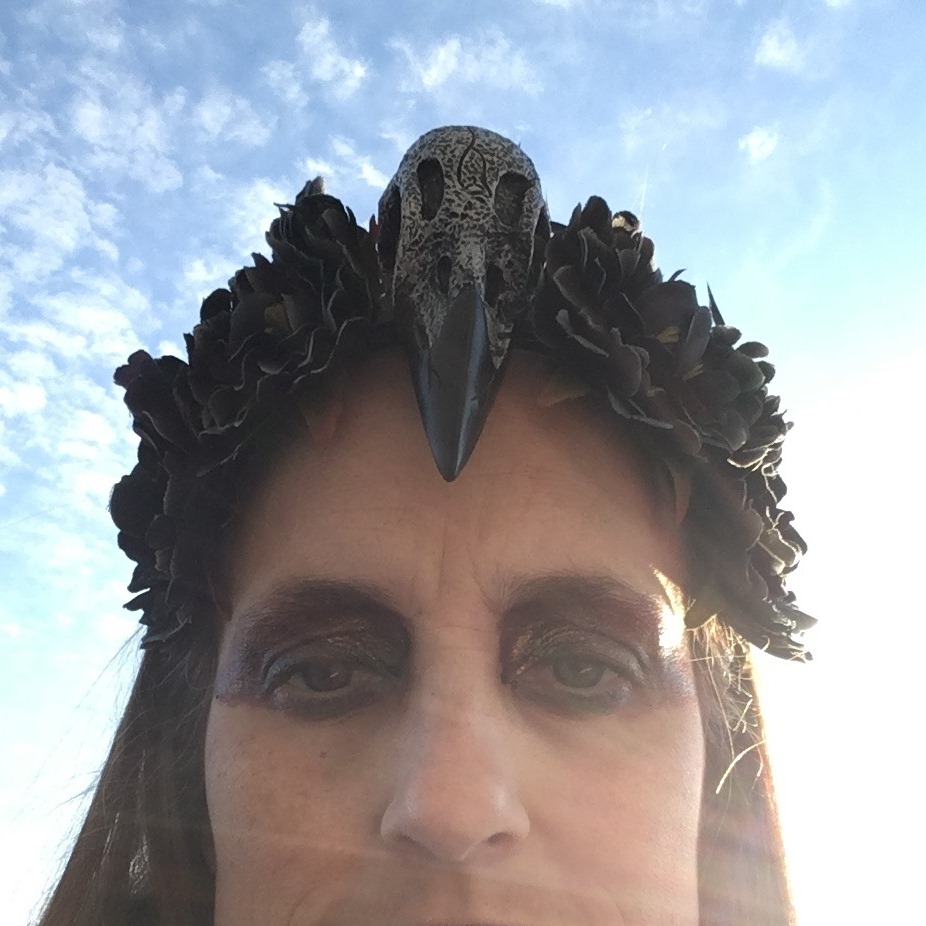
Original Creations
Yearning, Poem by Jennifer Weigel based on Andrew Wyeth’s Christina’s World
Published
1 week agoon
March 2, 2025I have recently begun exploring Fibonacci poetry and penned this as a consideration for the Lovecraftian terrors while considering that Kansas was once an inland sea. It is also based on the beloved and enigmatic painting of Christina’s World by Andrew Wyeth.
She
stares
ahead;
the landscape
yawns ever further
spanning the distance between us
and that deep unthinkable unknowable abyss.
This plain was once an inland sea,
a vast ocean filled
with terrors
beyond
our
ken.
Time
stands
still for
none of us.
It marches towards
our inevitable decay.
Our fragile flesh succumbs to the horror of the void,
cradling our fallen progeny
and yearning for home.
Christina,
hurry
back.
Now.
It
could
happen
anywhere…
The farmhouse beckons
from its horizon vantage point,
thousands of blades of grass groping like tiny tendrils.
The ancestors grasping at straws,
hoping to evade
inevitable
collapse,
their
loss.
Stars
fall.
Panic
sounds beyond
our comprehension.
Their silent screams fall on deaf ears.
We cannot interpret their guttural languages
or understand their diminutive cries
this far from the tide.
Slumbering
depths still
snore
here.
The
ebb
and flow
roil and churn
with water’s rhythms,
caress the expanse of grasses
covering this now fragile and forsaken ocean.
The landscape gapes and stretches wide,
reaching to grab hold
of her dress,
earthbound.
Lost
her.

I hope you enjoyed this jaunt through Christina’s World into pure terror. Feel free to check out more of Jennifer Weigel’s work here on Haunted MTL or here on her website. Or go on a trip to the Tallgrass Prairie Preserve.

So what better follow up to Invisibles Among Us in Nightmarish Nature than Monstrous Mimicry? Further exploring the leaps that critters will go to in order to eat and not be eaten. This time we’re focusing on those creatures that want to intentionally be mistaken for one another.
Insects Pretending to Be Insects
This is a pretty common subgroup in the mimicry set. Featuring such celebrities as the Viceroy Butterfly, which looks an awful lot like the Monarch. Why? Because everyone knows Monarch Butterflies taste nasty and cause indigestion. Duh? Though it appears the Viceroy took further cues from this and is not all that tasty in its own right either. Dual reinforcement is totally the way to go – it tells predators not to eat the yucky butterflies regardless. But some bugs go a bit further in this, imitating one another to seek out food or protection. Various wasps, spiders, beetles, and even some caterpillars impersonate ants for access to their nest or because ants aren’t as appetizing as their buggy counterparts to much of anything outside of the myrmecophagous crowd (as shared before, here’s a fun diversion with True Facts if you have no idea), though some also have nefarious plans in mind. And similarly, the female photoris fireflies imitate other firefly signals luring smaller males to try to mate with them where they are instead eaten.
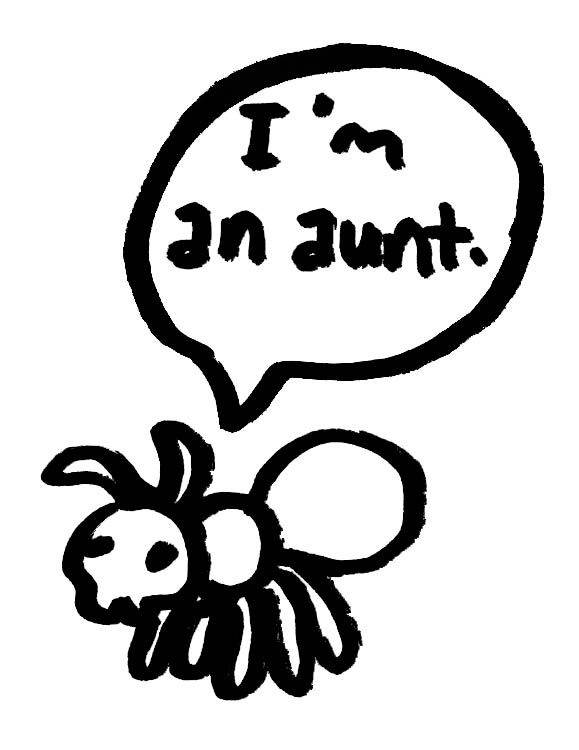
Kind of Weird Mimicry: Insects Pretending to Be Animals
Moths are pretty tasty, as far as many birds and small mammals are concerned, so several of them find ways to appear less appetizing. Using mimicry in their larval form, they may try to look specifically like bird scat or even like snakes to drive away predators, with elaborate displays designed to reinforce their fakir statuses. And once they emerge as moths, they continue these trends, with different species flashing eye spots to look like owls, snakes, cats, and a myriad of other animals most of their predators don’t want to tangle with. But other insects pretend to be larger animals too, with some beetles and others producing noises often associated with predator, typically towards the same end – to deter those who might otherwise eat them.
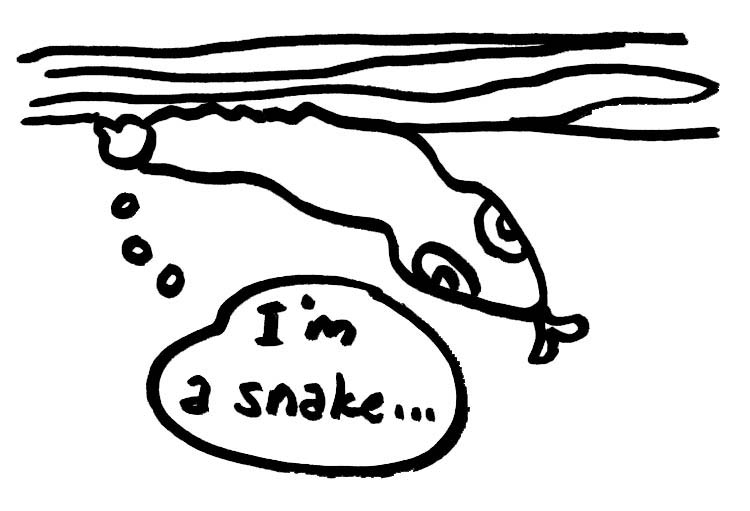
Animals Pretending to Be Animals
Similarly some animals will mimic others. Snakes may resemble one other, as seen in the Milk versus King versus Coral Snakes and the popular rhyme, Red with Black is safe for Jack or venom lack, but Red with Yellow kills a fellow for all that it isn’t 100% accurate on the Red-Yellow end (better to err on the side of caution than not – so assume they are deadly). Fish and octopuses will imitate other fish for protection status or to conceal opportunistic predatory behaviors. And lots of animals will mimic the sounds others make, though Lyrebirds tend to take the cake in this, incorporating the vocalizations into mating rituals and more.
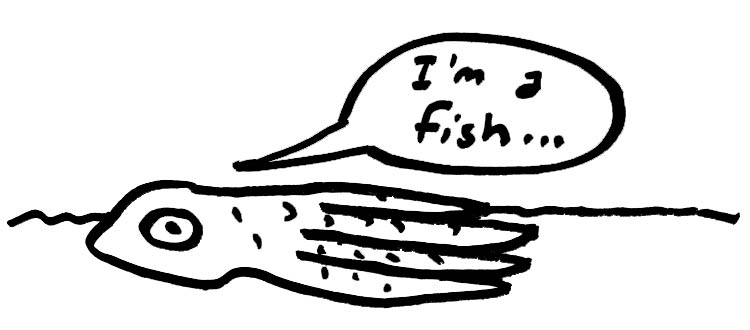
Really Weird Mimicry: Animals Pretending to Be Insects
Some of the weirdest mimicry comes out in animals pretending to be insects or small fish, where a predator will flick its strangely formed tongue that looks like a fish or water nymph to draw in more tiny critters that feel safe with their own, only to find themselves snapped up as dinner. Snapping turtles are notorious for this, disguising themselves in the muck to make their big asses less obvious and reinforce the ruse. Even some snakes do this.
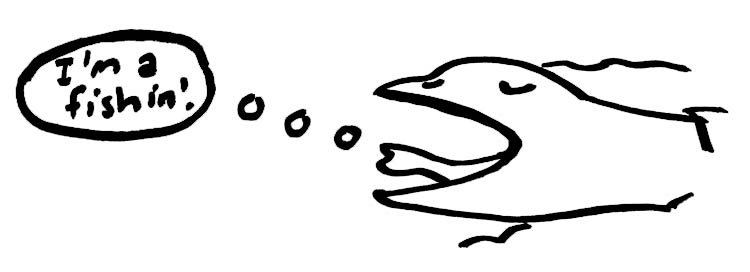
Weirder Still
Then there are things that pretend to be plants. Like orchid mantises. Or sea slugs that look like anemones (some of which eat anemones and have stingers to match). I mentioned a few of these in the Invisibles Among Us segment last time, because some are highly specialized to look like very specific things and others just aren’t. Essentially, nature loves to play dress up and be confusing and adaptive. It’s like Halloween year round. And who can really argue with that?
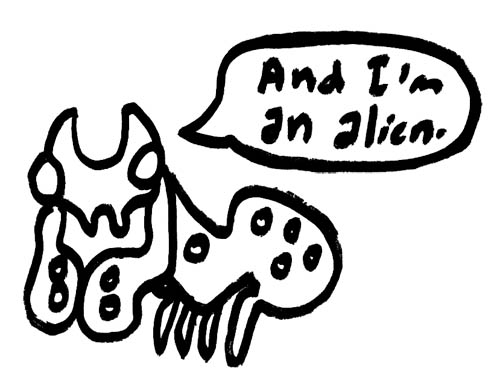
Here’s a fun video from Animalogic exploring some of these themes. And feel free to check out more Nightmarish Nature here.
Trending
-
Book Reviews6 days ago
Victorian Psycho: She’s Paranoid, Violent and Utterly Charming
-
Book Reviews1 day ago
A Stellar Debut Novel, We Used To Live Here
-
Movies n TV6 days ago
“How to Split an Atom,” a Scientific Return to Evil
-
Original Creations6 hours ago
All That Remains, an Afterlife Story by Jennifer Weigel


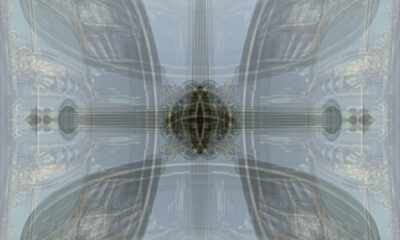

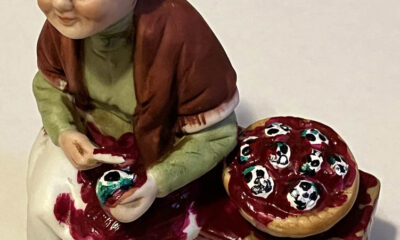

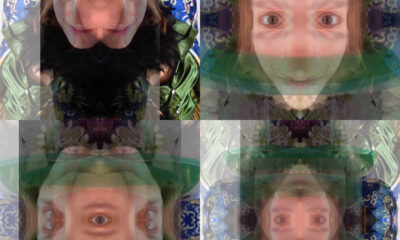













Reece
September 2, 2021 at 5:35 pm
This is dark. I love it.